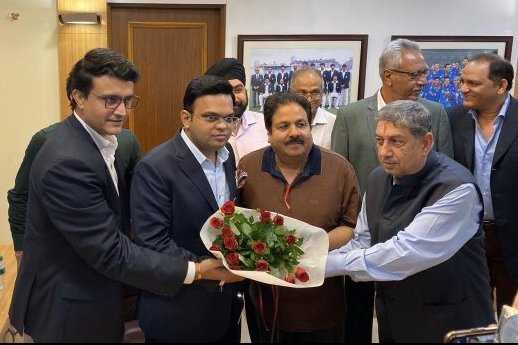
Lodha reforms dilution, appointment of CAC focus of Ganguly-led BCCI AGM
Ahead of Ganguly's appointment as BCCI President, the Supreme Court-appointed Committee of Administrators was in control of the cricket body for 33 months.

The newly-crowned BCCI President Sourav Ganguly will hold the apex body’s first Annual General Meeting on Sunday (December 1), seeking to dilute some key reforms mandated by the Supreme Court, constitute cricket committees like the CAC and appoint the Boards representative at the ICC.
Ahead of Ganguly’s appointment as the president of the world’s richest cricketing body, the Supreme Court-appointed Committee of Administrators (COA) was in control of the cricket body for 33 months.
Ganguly’s current nine-month stint will get an extension if the BCCI dilutes the specific reform on tenure-cap as mandated by the SC-appointed Lodha Committee. In the agenda released for the AGM, the BCCI has proposed significant changes to the existing constitution.
As per the current constitution, which is approved by the Supreme Court, an office-bearer who has served two three-year terms, either at the BCCI or at the state association, goes into a compulsory three-year cooling-off period.
The current dispensation wants that period to kick in only after the individual has finished two terms (six years), at the board and state association separately. If passed with a three-fourth majority, it will effectively extend the tenure of Ganguly and secretary Jay Shah respectively.
Also read: Conflict of interest, graft-free tenure, Dhoni to be Ganguly’s focus
BCCI treasurer Arun Dhumal told PTI that all the proposed amendments are aimed at strengthening the board’s structure and will only be incorporated once approved by the Supreme Court.
“We are not touching the 70-year age cap clause. With regards to the cooling-off, our point of view is if somebody has gained experience by running the state association, why give him a cooling-off. That experience should be utilised in the best interest of the game. If he can contribute in the BCCI, why not?” said Dhumal.
“We will take it (all passed amendments at the AGM) to the Supreme Court. We will put across our point of view. What are the practical difficulties we are facing with regards to a few things. In case the court agrees with our idea, then we will have those amendments,” he added.
However, going forward, it has been proposed that a three-fourth majority at the AGM should be able to ratify any amendment in the constitution as it is not “practical” to take the Supreme Courts’ approval, which is required in the existing constitution.
With the BCCIs clout significantly reduced at the ICC due to the administrative crisis over the past three years, the board has proposed that experienced hands must represent India in the world body and the 70-year age cap clause should not apply to them.
This could pave the way for former President N Srinivasan to attend the ICC meetings on behalf of the BCCI. Srinivasan was forced to step aside after the game was shaken by the 2013 spot-fixing scandal.
“In order to protect the interests of BCCI, which are being steadily eroded at ICC, people with experience of negotiation and personal interaction with other member nations should be made the representatives,” the BCCI said.
Also read: In a first in domestic cricket, first-class players to have contract system
Under the existing constitution, the CEO is the point man for the nine-member apex council but the current set of office-bearers wants that role for the secretary, making him more powerful. The top brass also wants the CEO to report to the secretary.
The account of the last three financial years will also be passed at the AGM.
In terms of cricketing decisions, various committees, including the Cricket Advisory Committee (CAC), will be appointed at the AGM.
After Sachin Tendulkar, VVS Laxman and Ganguly stepped down from their roles, Kapil Dev, Shantha Rangaswamy and Anshuman Gaekwad appointed the men’s team head coach. Ravi Shastri got an extension for the top job.
Both Rangaswamy and Gaekwad are now part of the apex council as representatives of the Indian Cricketers Association. It is the prerogative of the CAC to appoint the selection committee. So, it would be interesting to see, which former cricketers of repute form the high-profile body.
A new Ombudsman and Ethics Officer will also be appointed. The two roles are being performed by (retired) Justice D K Jain, whose term ends in February.
The contentious issue of conflict of interest is also expected to be discussed at the AGM. Ganguly has already said it is one of the most serious issues facing Indian cricket. Several past players have expressed unhappiness over the Conflict of Interest clause, which the CoA, in the last status report, wanted to be altered.
Meanwhile, it is understood MCA vice president Amol Kale would represent the cricket association in the AGM, while the Tamil Nadu Cricket Association could be represented by either its secretary R S Ramaswamy or president Rupa Gurunath, daughter of Srinivasan.
The Cricket Association of Bengal will be represented by its secretary Avishek Dalmiya.
(With inputs from agencies)

